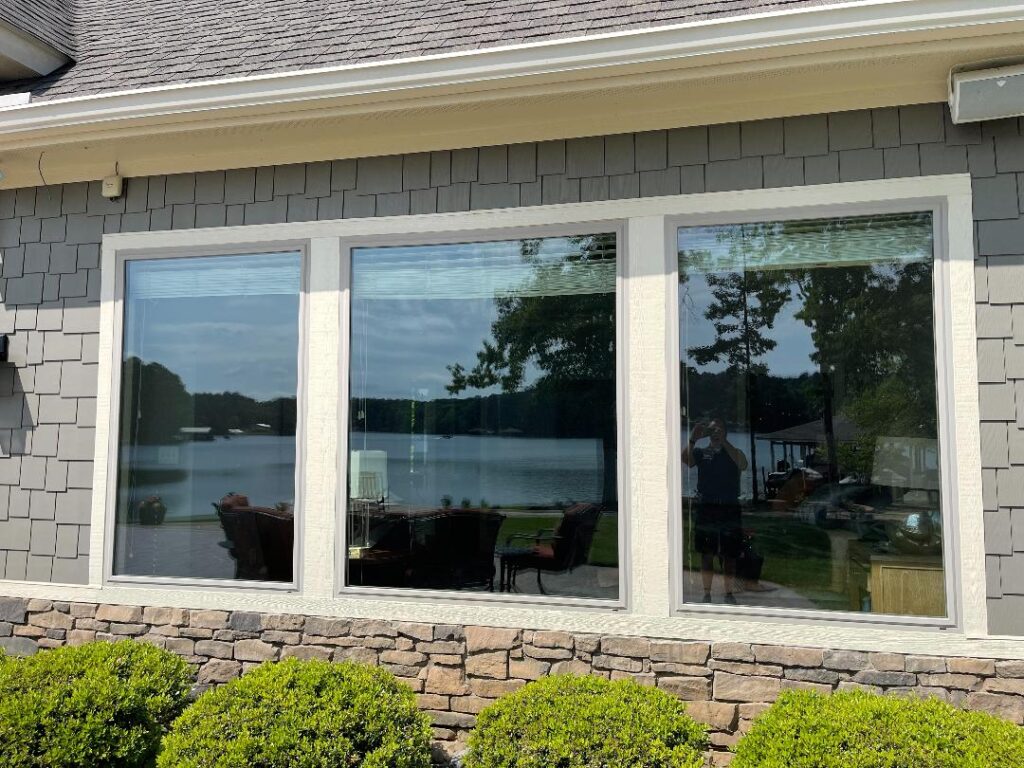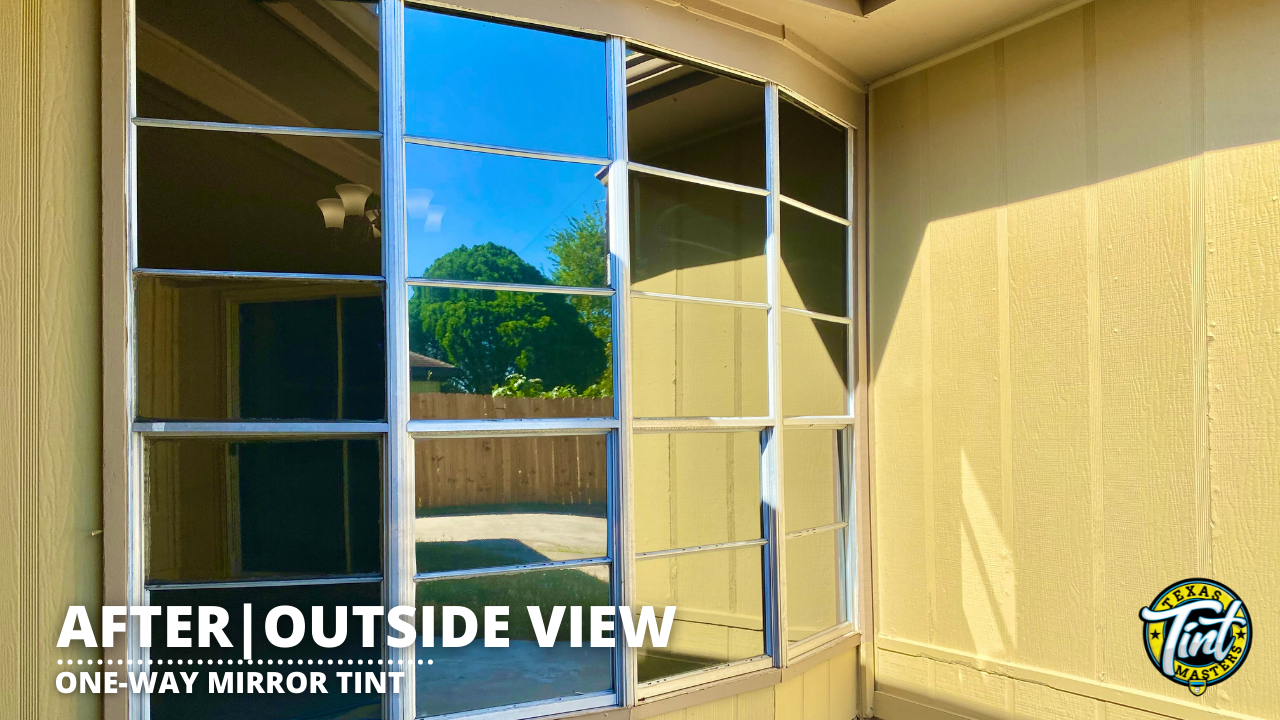Leading Residential Window Tint Installers Near You: Top quality and Competence
Just How Residential Home Window Tinting Enhances Your Home's Power Effectiveness
Residential window tinting presents an engaging service for home owners seeking to enhance power effectiveness within their space. By using specialized films to windows, it effectively reduces warmth transfer, consequently stabilizing indoor temperature levels and lessening the demand for extreme home heating or cooling. This not just curtails power usage yet also gives a more comfortable environment by reducing glow. Comprehending the subtleties of how tinting works and choosing the ideal type for your home can be essential. Oddly, what elements should one think about prior to making this financial investment?
Understanding Window Tinting
Recognizing home window tinting is essential for property owners seeking to enhance both convenience and power performance in their space. Residential Window Tint. Home window tinting involves the application of a thin movie to the inside or exterior surface of glass windows. This film can substantially regulate the quantity of sunshine and warm that goes into a home, therefore influencing interior environment problems
There are different kinds of home window tinting movies readily available, each with distinct homes. Dyed movies absorb solar energy, while reflective movies disperse it away from the glass surface. Ceramic movies supply an equilibrium of exposure and warm rejection, making them a popular selection among home owners. The performance of window tinting is frequently measured by its Visible Light Transmission (VLT) percent, which shows just how much light can pass with the film.
Benefits of Power Effectiveness
Window tinting not only enhances aesthetic appeals but additionally plays a considerable duty in enhancing power effectiveness within domestic rooms. By decreasing warmth transfer through home windows, colored films produce an extra steady interior environment, which can bring about substantial decreases in energy usage for heating & cooling. This energy performance equates into reduced energy bills, supplying homeowners with substantial lasting financial savings.

In addition, window tinting enhances the convenience of living areas. By minimizing glare and obstructing unsafe UV rays, colored windows develop a more pleasant environment, which can lead to boosted wellness for occupants. The security versus UV rays also assists preserve furnishings and flooring from fading, adding to the durability of house products.
How Tinting Functions
Tinting films run with a combination of sophisticated materials and modern technologies developed to manage the amount of solar power entering a home. Largely composed of polyester, these movies typically incorporate metal or ceramic bits that reflect and take in warmth. This twin ability allows them to dramatically reduce the infiltration of ultraviolet (UV) rays and infrared radiation while allowing visible light to travel through.
The effectiveness of window tinting is determined by its solar warmth gain coefficient (SHGC), which indicates just how much solar power is transmitted via the home window. Lower SHGC values are preferable as they signify greater warmth rejection. Furthermore, home window colors can include a range of tones, enabling property owners to personalize their visual choices while boosting power efficiency.
In addition, these movies act as a barrier, stopping warmth loss throughout colder months by reflecting interior warmth back into the home. This thermal insulation result enhances the air conditioning benefits gotten throughout warmer months, adding to a well balanced interior environment year-round. By taking care of solar energy effectively, property home window tinting not just improves comfort however likewise plays a crucial duty in lowering power consumption and reducing utility bills.
Choosing the Right Tint

There are numerous types of window movies available, go to this website including colored, metalized, and ceramic. Colored films are economical yet may have restricted longevity. Metalized films provide far better heat being rejected but can conflict with digital signals. Ceramic films offer exceptional warmth control without compromising visibility and are highly resilient, making them a popular option.
Visible light transmission (VLT) is another vital variable, as it shows the quantity of all-natural light that can travel through the tinted glass. Property owners ought to select a tint with a VLT that matches their illumination preferences while still offering sufficient glow decrease.
Furthermore, analyzing the solar warmth gain coefficient (SHGC) can aid establish just how well a color can obstruct warmth from sunshine. A lower SHGC suggests much better warm control, eventually improving energy efficiency.
Installation and Maintenance Tips
Correct installment and upkeep are vital components in optimizing the benefits of residential home window tinting. Experts additionally make use of specialized devices and strategies, which can boost the resilience and performance of the tint.
Adhering to installation, maintenance is essential to extend the life of the home window film. It is suggested to wait at least 30 days before cleaning the tinted home windows to enable the glue to treat completely.
Additionally, regular examinations are useful. Examine for any type of peeling or bubbling, which can suggest inappropriate installation or put on over time - Residential Window Tint. Addressing these concerns without delay can stop further damages and keep energy effectiveness. By adhering to these setup and upkeep pointers, property owners can guarantee their window tinting remains to provide significant power savings and convenience for several years ahead.
Final Thought
In final thought, domestic home window tinting offers as an effective option for enhancing power performance within homes. By decreasing warm transfer and obstructing hazardous UV rays, home window movies add to decrease power consumption and boosted interior convenience.
Window tinting involves the application of a slim movie to the interior or outside surface why not try this out area of glass see this home windows. By reducing warmth transfer through windows, tinted films produce a much more stable indoor climate, which can lead to substantial decreases in power intake for heating and cooling.The performance of window tinting is determined by its solar warmth gain coefficient (SHGC), which indicates just how much solar energy is transferred through the window. By managing solar power efficiently, domestic home window tinting not only enhances convenience but also plays an important function in reducing power usage and reducing energy bills.
By reducing warm transfer and blocking unsafe UV rays, home window films add to lower power consumption and boosted indoor comfort.